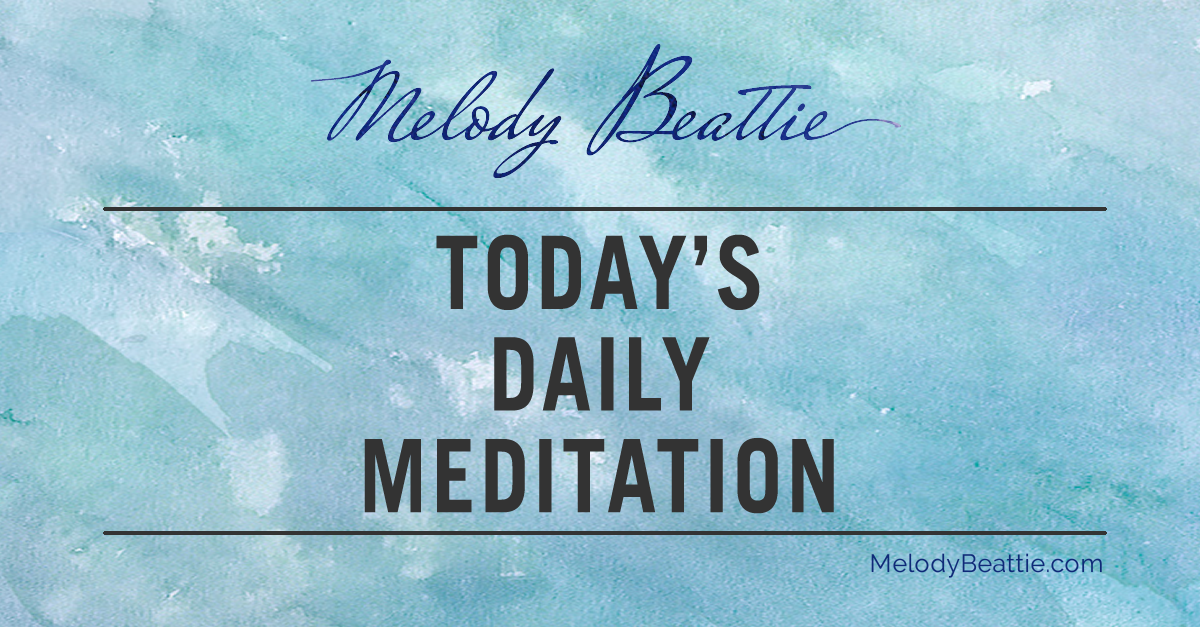She Found Herself in Nowhere
October 21, 2019

Jennifer sat across the breakfast table from her husband. She watched him eat his pancakes and eggs, smiled at him as he drank his orange juice. Like a record on the lowest level of volume, her thoughts played in the back of her mind. I hate this town. I hate my life. And, she thought, watching him pick up the newspaper, I’m growing to hate him, too.
This was the job of his dreams. He had studied for it, prepared for it. She had given up her friends, her life, to move to this small town in the middle of nowhere so he could be a microbiologist. He was content.
She was dying inside.
She had tried everything she knew not to feel the way she felt. She had gotten involved in volunteer work. She had tried to make friends. She had her job working in the accounting department for a local company. She had waited. She had prayed. Nothing, nothing she had done had worked.
And with all her heart, she didn’t want to rain on his parade.
She loved him. She wanted to be married to him. She wanted to be his wife. At least she used to. Now the record of hating her life and hating him played continuously, each day.
There must be something wrong with me, Jennifer thought, cleaning up the kitchen and brushing his cheek with a good-bye kiss as he left for work. Maybe if I try harder, I won’t feel this way.
Try what? a quiet voice said. What’s left to try? You’ve done everything you know to solve this problem. You hate your life more every day.
I’ll just endure, Jennifer thought. I don’t know what else to do.
There was no apparent reason the phone should have rung that morning with a call from an old friend in the town where she used to live. Jennifer had tried to keep her old friendships vital, but as the days ground into months and time moved along, there had been less and less to talk about. When they asked her how she liked her new life, Jennifer would just lie and say, “It’s fine.”
There was no apparent reason Jennifer should have said anything differently that morning, should have said anything other than “I’m fine” when her friend asked how she was. It wasn’t her style to be honest about how she felt—with anyone else, or herself. But in one gush, it came spewing out.
“Have you told your husband how you really feel?” her friend asked.
“Oh no,” Jennifer said. “I couldn’t do that.”
“Honey, I think you need to take a look at your codependency,” her friend finally said.
Jennifer had heard the word before. It applied to some people. Her old friend Marge, who was married to that beer-guzzling bum of a husband, Harry. Marge was codependent. Always chasing him around to bars, trying to make him stop drinking. Lying to his boss. Marge was a mess.
Jennifer wasn’t codependent. She was, well, she was a good wife.
The literature and books came in the mail the following week. Her friend sent them to her, even though Jennifer said she didn’t think the concept applied to her and her life. By the time they arrived in the mail, Jennifer had almost forgotten about the conversation they had.
Jennifer danced around the books for two weeks. She put them on the mantel, stared at them, then moved them to the desk in the den.
“What’s that?” her husband asked.
“Oh nothing. Just some books my friend sent to me.”
“Ummm,” he said.
The books haunted Jennifer. Then she made a small choice: She didn’t have to label herself anything; but she could at least be open to reading the books.
Jennifer read twenty pages and then threw the book she’d been reading across the room. Her fit of rage surprised even her. Especially her. Jennifer never, ever got mad. It wasn’t who she was.
Then, before the book hit the floor, she started crying. And couldn’t stop.
Nobody had ever told her what the book had said—that it was okay to be who she was. Nobody in her entire life. This subtle trying to make herself be someone else had permeated her since she was a child: trying to be a good student; trying to be a good daughter; trying to be a good wife. Somehow in trying so hard to be a good everything, she had disappeared. And she wasn’t good at anything anymore, including living her own life.
The next months were the most frightening—and freeing—of her life.
It took her that long to work up the courage to tell her husband how she felt. Opening her mouth, being honest about who she was, even coming to believe that was okay, was the most unfamiliar place—even stranger than this town she was living in—she had visited in her life.
She had always prided herself on being so good and responsible. Now in her thirties, in a small town in the middle of nowhere, Jennifer was finally learning to surrender control and take responsibility for herself.
“While it was taking place, I felt so confused and lost,” Jennifer later told a friend. “Now I look back on the whole experience, and it was the best thing that ever happened to me. I told my husband how I really felt. I told him I loved him and wanted to be his wife, that he could stay in this town if he wanted, but I had to take care of myself. He was shocked. But how could he have known before that? I had been pretending for so long, I didn’t even know who I was anymore.”
“We moved back to our hometown. Our marriage is stronger now than it was before. I wasn’t a victim. I learned that. He hadn’t done anything to me. I had done it to myself.”
She calls her best friend on her cell phone from a bathroom stall at work after excusing herself from a board meeting and then bursting into tears. All she did was ask her boyfriend, described as a vile, self-indulgent commitment phobic, whom she’s been seeing off and on for eighteen months, to take a vacation with her. He doesn’t just decline the invitation; he breaks up with her on the spot.
Now she’s trapped in the bathroom stall with dripping eyeliner and no makeup.
“I’m codependent,” Jude says. “I asked for too much to satisfy my own neediness rather than need.”
In the book, Bridget Jones’ Diary, Bridget reports, Typical, but Jude naturally was blaming it all on herself.
In the movie, Bridget lovingly reassures Jude that she (Jude) isn’t codependent; the now ex-boyfriend is a jerk.
“I read Codependent No More,” a woman TV host confessed after they ran a documentary-type spiel on my life. Her co-hosts looked at her. Was that horror I saw in their eyes? “That was back in my codependent days,” the woman host quickly explained.
The first time I went to an Al-anon meeting, a perky woman met me at the door. “Welcome,” she said. “You’re an Al-anon.” I didn’t return the smile. “No, I’m not,” I said. “I’m an alcoholic/addict.” “Oh,” she said, still smiling. Was that a glimmer of understanding I saw in her eyes? “You’re a double winner. We’re so glad you’re here.”
I wasn’t. I was cringing with shame and madder than hell.
“Were you really one of those?” new friends ask me now.
I want to lie and say, No I just worked with them. I was never like that.
“Do you consider yourself codependent?” I asked a woman in her mid-twenties who obviously was.
“I prefer to think of myself as an over-carer instead,” she said. “The thing is, when I care too much about one person, someone else doesn’t get their fair share of my caring. And the person who goes without is usually me.
“Who wants to identify as an over-needy control freak? Not me,” she said. “Identify yourself as a codependent privately, quietly. Then own your power loudly, so everyone can hear.”
When I wrote Codependent No More, back in 1986, most people ascribed to the belief that it was our duty to control situations, attach ourselves to people, hang on, take responsibility for their behaviors, repress our emotions, feel guilty, and deprive and neglect ourselves. Somehow we had come to the societal and cultural conclusion that whatever was going on, behaving that way would help.
Now that common belief has changed. It is culturally and societally acceptable—even expected—that we take care of ourselves.
Over the years since I wrote Codependent No More, the collective feeling about codependents has become transformed from gratitude to the powers that be for isolating and naming that pain we call codependency to a reluctance to admit that we were or are one. We don’t want to be associated with the word that symbolizes controlling, needless victimization and martyrdom, manipulation, and a regular routine of doormatting ourselves.
I don’t like the word much myself.
But for the millions of people who have been intimately exposed to someone else’s alcoholism or another similar disorder, codependency was and still is a life-saving word. As Jennifer discovered, recognizing, understanding, and dealing with it becomes a gateway to getting and keeping a life.
“When did you deal with your codependency?” I asked a woman one day.
“When I got tired of beating my head against a brick wall,” she said, “trying to control everything and everyone except myself.”
However we identify, being a victim is out; taking care of ourselves is in.
Self-care is finally a popular choice.
From the book: Choices: Taking Control of Your Life and Making It Matter
The post She Found Herself in Nowhere appeared first on Melody Beattie.
About the author

In addiction and recovery circles, Melody Beattie is a household name. She is the best-selling author of numerous books.
One of Melody's more recent titles is The Grief Club, which was published in 2006. This inspirational book gives the reader an inside look at the miraculous phenomenon that occurs after loss--the being welcomed into a new "club" of sorts, a circle of people who have lived through similar grief and pain, whether it be the loss of a child, a spouse, a career, or even one's youth.
For more information about Melody and her books, visit the author's official website
